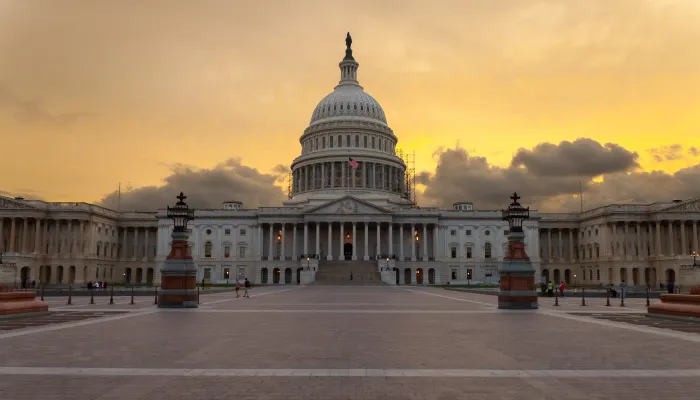Gene Steuerle: Planning for How to Present the Budget in 2013
If you are following the machinations over raising the nation's debt limit, you know that both political parties expect much of the progress on the budget to be delayed until at least 2013—after the next major election. Not one compromise on the table has even come close to addressing the nation's deficit issues head on. The big question is whether markets and the public will allow our elected officials to flounder around until 2013. Even if politicians can't agree on adequate benefit cuts and tax increases to bring about a sustainable budget before then, their bigger mistake would be to avoid putting in place a process to make budgeting far more rational than it has been.
One crying need is to increase transparency and force more accountability on both the president and Congress. Our budget talks break down for lots of reasons, but one concerns how hard it is for our leaders to get on the same page and admit what this budget is doing to our economy. Getting there means considering what rule changes are needed and making them into laws so future elected officials have no choice but to budget more rationally. And that work must start now—not in 2013.
For example, for any future budget Congress could require any or all of the following:
- The president must submit a budget that is balanced over an economic cycle no longer than eight years. If the Congressional Budget Office finds that the president's submitted budget violates this rule, the budget would formally be returned to him on grounds that it fails to meet his responsibilities to Congress;
- Any bill that increase the deficit (and any table that reports on the distribution of gains for those who get the additional spending or tax cuts) must formally make clear that the accounts are balanced through commensurate obligations on future taxpayers;
- All bills that likely increases the long-term deficit —not just over 5 or 10 years— must be "scored" that way by the Congressional Budget Office (perhaps without full quantitative detail after 10 years), so it's easier for Congress to subject such bills to special limitations on enactment;
- In their initial presentations of any proposed or adopted budget, the president (through the Office of Management and Budget) and Congress (through the Congressional Budget Office) should list tax expenditures next to direct spending when categorizing the budget. That way, for instance, all housing subsidies, whether direct spending or tax subsidies, would be reported in one place;
- Total health spending should be reported in the budget in one place, along with the effective tax rate on a tax base such as adjusted gross income that would be required to finance that spending annually without borrowing; and, my favorite,
- The budget changes proposed by the president and passed by Congress would be reported first as year-to-year differences in spending and taxes—rather than the current method, which implies that Congress is responsible merely for new legislation and not for past legislative changes that it passively allowed to be implemented under its watch.
My point here isn't to defend these particular changes or detail their implications. Nor is my list comprehensive or tested for support by Congress. In this short space, I simply want to suggest that progress in 2013 requires preparation now for more than grand bargaining sessions replete with triumphant winners and sore losers.
None of the rules would force any particular action. But each would add considerably to transparency and accountability. Many echo bipartisan suggestions from the Committee for a Responsible Federal Budget (which—full disclosure here—I helped draft).
If Congress and the president's political advisers think that debating rule changes like these can wait until 2013, along with the rest of the unresolved budget issues, they're wrong. Planning ahead always has some advantage. But the politics here also play out better before than after the next election. Any rule aimed at increasing transparency in the future is as likely to constrain the other party as much as one's own, so its chances of being accepted are greater when neither party can be certain that it won't be the minority. After the election, only one party may have a strong desire to impose transparency and accountability on the other.
Many of these rules create no partisan advantage. It's like agreeing to a set of rules for Monopoly before the game starts, instead of letting whoever becomes banker pay out as much money as she wants and whoever becomes the real estate mogul charge any rent. If the banker or property owners can set up rules after they obtain power, they are likely to game the system.
Budget policy isn't just about who wins and who loses. It is about operating under clear, fair, and widely understood rules—including, for starters, those inculcating transparency and accountability. Only inertia or myopia—not politics in the nitty-gritty sense—stops the president and the speaker of the House, or the two heads of the budget committees in each house, or any other bipartisan group from putting forward a better set of rules than we have today for how future presidents and Congresses report on the budget.
Gene Steuerle is a member of the board of directors of the Committee for a Responsible Federal Budget. He also is a senior fellow at The Urban Institute, co-director of the Urban-Brookings Tax Policy Center, and a columnist for Tax Notes Magazine.
"My Views" are works published by members of the Committee for a Responsible Federal Budget, but they do not necessarily reflect the views of all members of the committee.
Note: This article was originally published as a Government We Deserve column at the Urban Institute.


